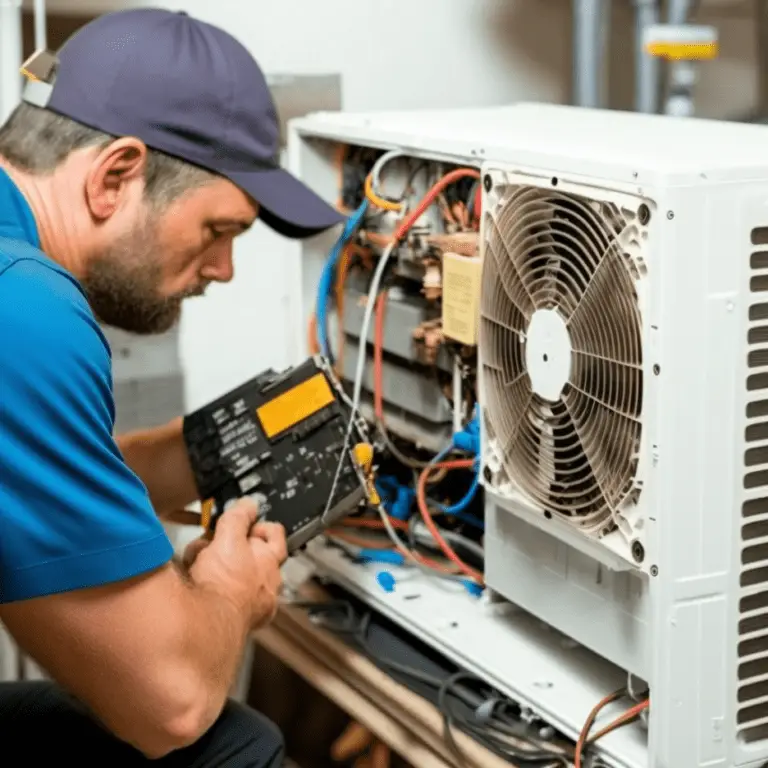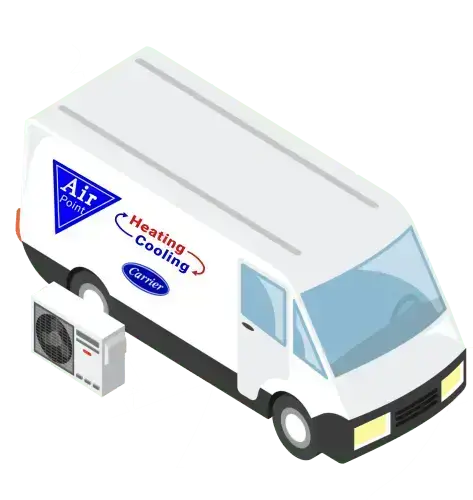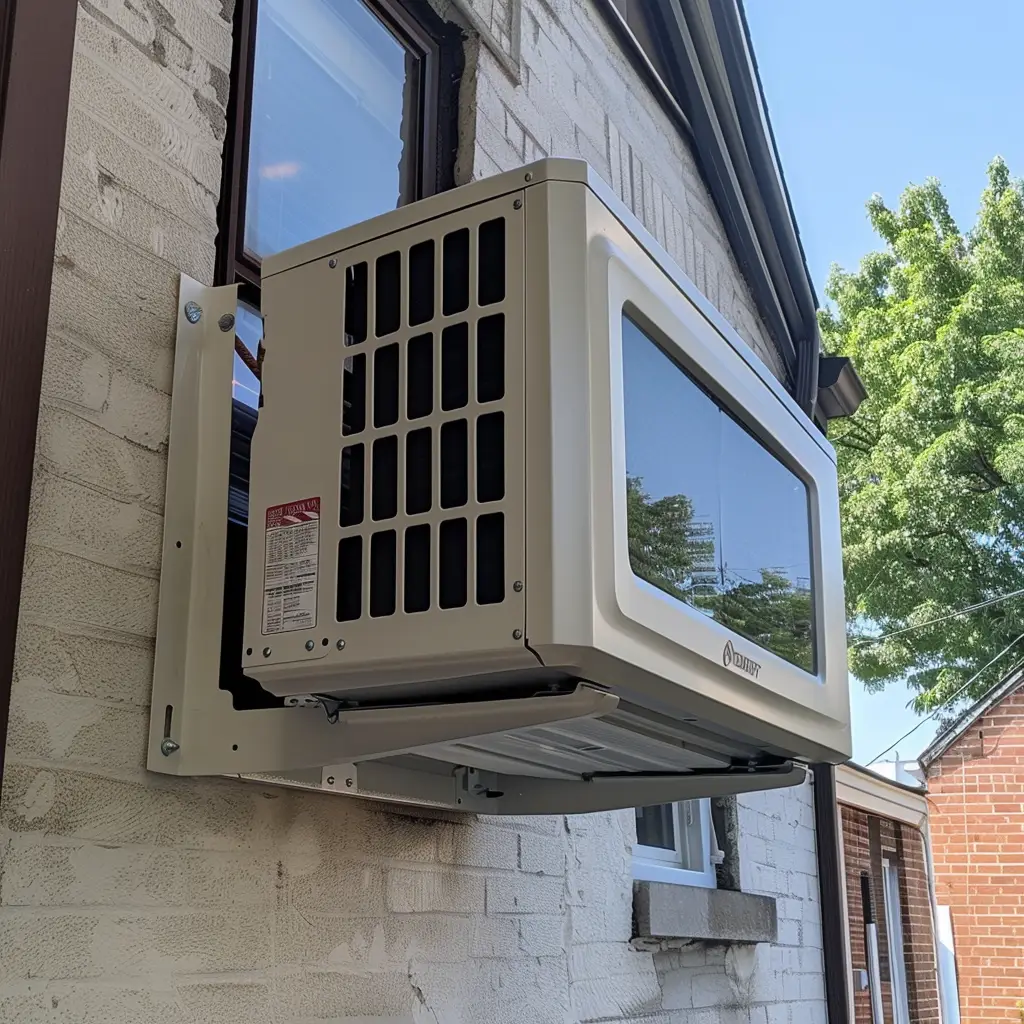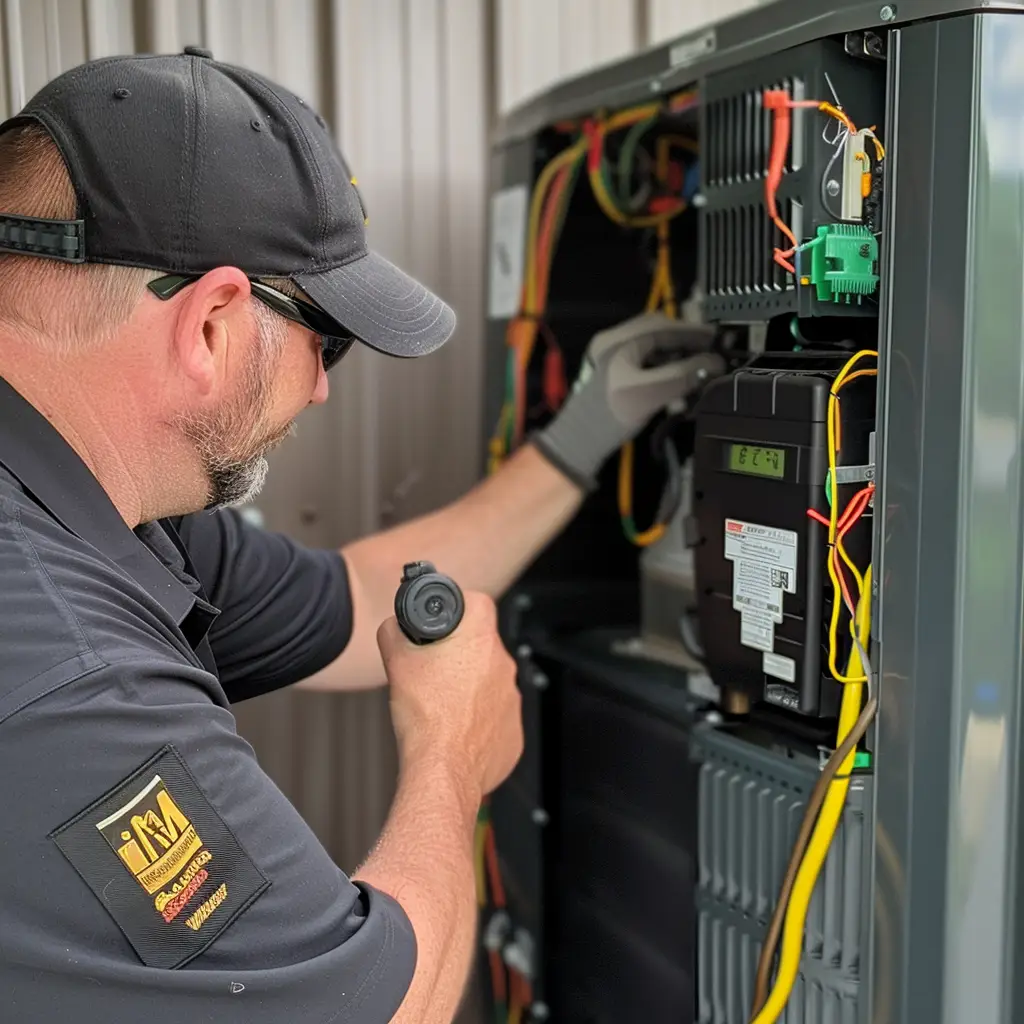If you’re a homeowner, you know that your heating, ventilation, and air conditioning (HVAC) system is one of the most important components of your home. It regulates the temperature, humidity, and air quality inside your house, keeping you comfortable and healthy all year round. However, like any other mechanical system, your HVAC system requires regular maintenance and occasional repairs to operate efficiently and effectively.
In this comprehensive guide, we will walk you through the ins and outs of HVAC service and help you keep your system in tip-top shape.
1. Understanding Your HVAC System
Before we dive into HVAC service, let’s start with the basics: what is an HVAC system? An HVAC system is a collection of equipment that regulates the temperature, humidity, and air quality in your home. It includes a furnace or boiler, an air conditioner or heat pump, ductwork, and other components.
Understanding how your HVAC system works is essential to ensuring that it operates efficiently and effectively. The first step is to know what type of system you have. There are several types of HVAC systems, including:
- Split systems: It consists of an outdoor unit (containing the compressor and condenser) and an indoor unit (containing the evaporator coil and blower).
- Packaged systems: In a packaged system, all of the components are housed in a single outdoor unit.
- Ductless mini-split systems: These systems are similar to split systems but do not require ductwork. They consist of an outdoor unit and one or more indoor units, each of which is mounted on a wall or ceiling.
2. The Importance of HVAC Service
Now that you understand the basics of your HVAC system, let’s talk about why regular service is so important. Regular HVAC service can:
- Improve energy efficiency: A well-maintained HVAC system will operate more efficiently, which can save you money on your energy bills.
- Extend the lifespan of your system: Regular maintenance can help your HVAC system last longer, reducing the need for costly repairs or replacements.
- Improve indoor air quality: Dirty filters, ductwork, and coils can lead to poor indoor air quality, which can have negative effects on your health.
- Prevent breakdowns: Regular service can catch small problems before they turn into major breakdowns, saving you money and preventing inconvenient system failures.
3. Types of HVAC Service
There are several types of HVAC service that your system may require, including:
- Regular maintenance: This includes tasks like changing air filters, cleaning coils, and checking refrigerant levels. It should be performed once or twice a year, depending on your system and usage.
- Repairs: If your HVAC system is not operating correctly, you may need to have it repaired. Common issues include clogged filters, malfunctioning thermostats, and refrigerant leaks.
- Replacements: If your HVAC system is old or beyond repair, you may need to replace it. This can be a significant investment, but it can also save you money in the long run by improving energy efficiency and reducing the need for repairs.
4. Choosing an HVAC Service Provider
When it comes to HVAC service, choosing the right provider is essential. Here are some tips for selecting a reliable and trustworthy HVAC service provider:
- Look for certifications: HVAC service providers should be certified by organizations like the North American Technician Excellence (NATE) or the Air Conditioning Contractors of America (ACCA).
- Check for licensing and insurance: Make sure the provider you choose is licensed and insured, which protects you in case of accidents or damage. Some HVAC company certifications to look out for include TSSA, HRAI and CSA certifications.
- Ask for references: A good HVAC service provider will be happy to provide references from satisfied customers.
- Read reviews: Check online reviews from sites like HomeStars and Google to see what previous customers have to say about the provider.
5. DIY HVAC Service
While we recommend hiring a professional HVAC service provider for most tasks, there are some things you can do yourself to keep your system running smoothly. These include:
- Changing air filters regularly: This is one of the most important things you can do to keep your system running efficiently. Dirty filters can restrict airflow, reducing efficiency and causing your system to work harder than necessary.
- Cleaning coils: Dirty coils can also reduce efficiency and lead to system breakdowns. Use a soft brush or cloth to gently clean the coils, being careful not to damage them.
- Checking thermostat settings: Make sure your thermostat is set to the correct temperature and is programmed correctly.
- Clearing debris from outdoor unit: Make sure the outdoor unit is clear of debris like leaves and branches, which can reduce airflow and efficiency.
However, it’s important to note that there are some tasks you should never attempt yourself, such as repairing refrigerant leaks or replacing major components. These tasks should always be left to a professional HVAC service provider.
6. When to Schedule HVAC Service
So, how often should you schedule HVAC service? The answer depends on several factors, including the age and condition of your system, the frequency of use, and the manufacturer’s recommendations. However, as a general rule, we recommend scheduling maintenance once or twice a year. This will ensure that your system is operating efficiently and will catch any small problems before they turn into major breakdowns.
7. Trust AirPoint for Your HVAC Service Needs
In conclusion, regular HVAC service is essential to ensuring that your system operates efficiently and effectively. It can improve energy efficiency, extend the lifespan of your system, improve indoor air quality, and prevent breakdowns. Choosing a reliable and trustworthy HVAC service provider is crucial, and it’s important to perform some basic maintenance tasks yourself to keep your system running smoothly.
At AirPoint, we understand the importance of regular HVAC service, and we’re here to help. As a Carrier factory authorized dealer and NATE certified in Toronto, we have the highest title of dealership with Carrier. Our team of experts is dedicated to providing top-quality HVAC service to homeowners throughout the Greater Toronto Area. We’ve been awarded HomeStars Best of the Best 2023 and have been rated 5 stars on Google and HomeStars.
Whether you need regular maintenance, repairs, or a new HVAC system, we’ve got you covered. Contact us today to schedule an appointment and keep your home comfortable and healthy all year round.
If you’re interested in learning more about DIY HVAC services, watch this video by Pan The Organizer
HVAC Service FAQs: Answers from the Experts
Get more answers to your questions about HVAC services from the experts at AirPoint
How often should I schedule HVAC maintenance?
We recommend scheduling maintenance once or twice a year, depending on your system and usage. Regular maintenance can improve energy efficiency, extend the lifespan of your system, and prevent breakdowns.
Can I perform HVAC maintenance myself?
While there are some basic maintenance tasks you can perform yourself, such as changing air filters and cleaning coils, there are some tasks that should always be left to a professional. Repairs and major component replacements should always be handled by an HVAC service provider.
How do I choose a reliable HVAC service provider?
Look for certifications, check for licensing and insurance, ask for references, compare quotes, and read reviews. Choosing a reliable and trustworthy HVAC service provider is crucial to ensuring that your system operates efficiently and effectively.
How do I know when it's time to replace my HVAC system?
If your system is old, beyond repair, or not operating efficiently, it may be time for a replacement. Factors like energy efficiency, cost of repairs, and lifespan should be considered when deciding whether to replace your system.
How can I improve indoor air quality?
Regular HVAC maintenance, including cleaning filters and coils, can improve indoor air quality. Additional steps you can take include using air purifiers, keeping your home clean and well-ventilated, and avoiding products that emit harmful chemicals.





